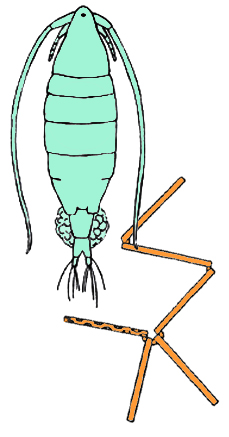Here I explore things that wander the earth. Mostly, that’s plankton. I myself, a bipedal human, am also planktonic right now. I came untethered and began to follow currents that pulled me out of New York City after over a decade of environmental work there. They pull me back quite often to continue that work, and to my family “home place” in western PA, and to a boatyard in New Bedford where I am involved in a labor of love.
Plankton \ˈplaŋ(k)-tən\ noun – any organisms that live in the water column and are incapable of swimming against a current. These organisms include drifting animals, protists, archaea, algae, or bacteria that inhabit the open water of oceans, seas, or bodies of fresh water. That is, plankton are defined by their ecological niche rather than phylogenetic or taxonomic classification. From Wikipedia, the free encyclopedia
Plankton tell us a lot about the state of the oceans and the state of the planet. From plankton I learn about whales, currents, nutrient cycles, stratification, freshwater, saltwater, estuaries, atmosphere, biomass, life cycles, commercial fisheries, microscopy and SpongeBob SquarePants.
Plankton are a neutral optic for incendiary/depressing topics such as climate change, globalization and the plastic revolution. There is a lot to say about these things, and most of what I read stresses me out and makes me want to cease with the thinking. (Why, humanity, why?) I can handle plankton as the messenger for some reason.
Plankton sampling is my entry-level portal back to what they call “real science”. Citizen scientists and students use the same basic techniques and equipment as the masters – bucket, rope, net and magnification. You can get pretty fancy, but it doesn’t take much to get started.
They’re a toehold on the infinite. To me, stars = snowflakes = plankton. It’s a very similar effect.

If you are the same Kate Zidar who was in the Survey of Popular Music/Rock & Roll Enrichment Class at Summer Study at Penn State in 1994, I was the teacher of that class. So impressed to read online about all of the great environmental work you’ve done. When I read your name in Colin Beavan’s “No Impact Man” I figured it had to be you. Feel free to say hello via e-mail if, in fact, you are that same Kate Zidar and remember me. If not, disregard this, but don’t stop trying to change the world for the better!!!
Hi Eric, yes I was at PSU oh so long ago! I remember your class, thanks for the kind words. As you can see I did not become a rock star.